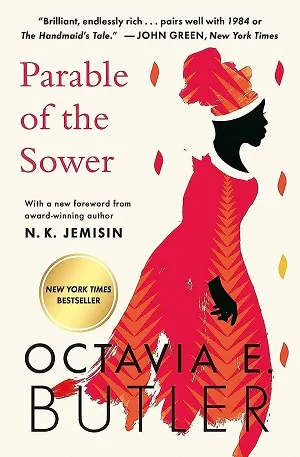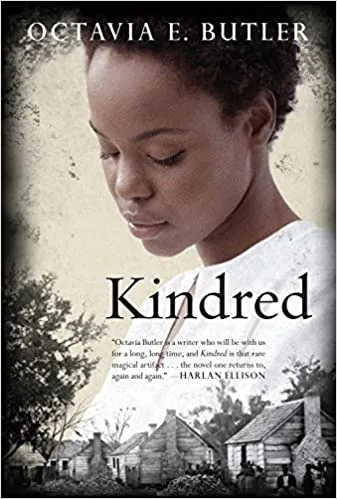
Is Reading Your Love Language?
Why do we feel compelled to share our books? What is it about the act of reading that inspires the growth of bookish communities? We find each other through book clubs, Bookstagram, BookTok, fandoms, Little Free Libraries, Friends of the Library, read-alongs, and more. We gift books, we want to know what family and friends thought about the books we recommended, we check out a potential partner’s bookshelves, we seek out space to share our bookish interests.
For much of my life, I thought introverts like me gravitated toward the world of books because reading is a solitary practice, forgetting that my childhood introduction to reading was communal and missing that so much of my adulthood experience of reading was increasingly about finding community and common ground, about sharing and bonding over books.
I’m putting it out there that books are a love language, that reading builds community and deepens our bonds with one another, and I’m viewing this perspective from a positive lens – pardon me as I indulge in some good feelings about bookish community backed by personal anecdotes, other experiences, data, and science.
Love Language Who?
First things first: what even is a love language? Author, radio talk show host, and Doctor of Philosophy Gary Chapman, Ph.D. is responsible for developing the five love languages in his book, aptly titled, The Five Love Languages. The first time I came across the concept of love languages, it came out of the blue in casual conversation, and then it was inescapable, all over social media and online content. Memes about love languages haven’t supplanted memes about enneagrams in my circles, but the languages have become another tool in the toolbox for couples, friend groups, and strangers talking to strangers on the internet. To reference your love language is to say, “This is me. This is how I operate. Use this as a guide to engage with me.”
The purpose of Chapman’s book, as stated in the publisher’s synopsis, is more specific to romantic relationships. The book is meant to “help you experience deeper and richer levels of intimacy with your partner.” I did not know who Gary Chapman was before writing this piece. I have never read The Five Love Languages. You don’t have to read the book to engage with the subject matter when it comes up in the real world (because people will almost always follow up the proclamation of their love language with something of an explainer) or to get the general concept – that the ways in which people show and receive love fall into five categories:
- Words of Affirmation
- Quality Time
- Receiving Gifts
- Acts of Service
- Physical Touch
There’s room to argue that various aspects of the reading experience fall under these categories, but I’m not here to argue that Chapman forgot an essential language. I’m here to delight in and explore the concept of reading as its own love language. But if you are interested in learning more about the canon, there’s the book and a whole site dedicated to the languages.
Moreover, as with much of the internet, when I talk about reading as a love language, I’m not exclusively talking about how people give and receive love in romantic relationships, but how we do so across many types of relationships, both established and prospective. Because sometimes we’re showing love to a community we don’t physically interact with or see.
Blame It On Butler
I will admit that I really got to thinking about reading as a love language a few months ago when my partner and I decided to read a book together, so my own anecdote does relate to a romantic partnership. And it delights me to say that it all started with Octavia Butler.
In the hushed confines of the Huntington Library’s leather-scented Exhibition Hall, my partner and I wandered over to a tribute to Octavia Butler. I got to talking about my admiration for Butler, a prolific author of science fiction, a Black woman who published her first work in the ‘70s, entering a genre dominated by white men and absolutely crushing it. I talked about the Parable series and its ominously prescient forecast of our grapples with systemic racism and climate change. I forged on, observing my partner’s interest pique. Unlike many of our other bookish discussions, it wasn’t just me talking about a book I’d read and loved. I admitted that I hadn’t read Parable of the Sower. Due to the nature of my work, I’m usually the one driving our conversations about books, and it’s usually to talk about something I read and loved. It’s rare for us to come to a conversation about books from a shared place of curiosity, interest, and ignorance, but there we were. The novelty of it all generated the idea of a book club for two.
The more I thought about the prospect of reading this particular book with my partner, the more I was struck by a thrill of anticipation and hope. This proposal wasn’t just about starting a two-person book club like a pair of lonesome doves – this proposal presented the opportunity for me to share something significant and important about who I am and what I stand for with a loved one; an opportunity to see where, how, and if the book’s themes, message, and writing resonated with my partner; an opportunity, in effect, to strengthen our relationship through a deeper sense of understanding.
Melissa Hugel wrote about some of the benefits of reading a book with your partner for MIC, including discovering a new side of your partner, but the benefits of reading together extend beyond significant others. Many of us begin the communal reading journey in the earliest years of our lives, sharing a story with our parents or other caregivers: they read aloud and we listen, interrupting with observations and pointing at visuals. Whether or not we know it — though I suspect plenty of us do, if only in abstract — these moments provide more than an opportunity to introduce and teach literacy. These moments allow us to show and practice care. From choosing which story to tell to taking time out of the day to share space and give comfort, storytime allows us to express love in so many ways. And in taking this time, we build actual neurological connections, our brain waves synchronizing with the storyteller’s. I’d argue that we understand on some level that this act is important to our relationship, that we are building a common place.
I saw my opening to do much the same.
Real Talk But Make It Book Club
Butler’s writing often explores important issues, including race and racism. I am African American and Southeast Asian. My partner is white. He knows that to be Black and Brown in America is to always be under the thumb of systemic racism, but he’ll never know the experience firsthand. It’s important to me and our relationship that he does the work to better understand where I’m coming from – why I’m sometimes afraid to jog in our neighborhood, why I get so annoyed when people ask me where I’m really from, why I’m cynical about the healthcare system. Also, I’m his partner, not his educator, and sometimes I get so tired of talking about race. There have been moments in my life when I’ve snapped in reaction to a surprise discussion about racial violence. I want to speak from my own experience and help people understand where I’m coming from, but I need dedicated time and space for those discussions and I need boundaries. A book club can help with that.
We can set rules to discuss these topics within the boundaries of dedicated book club time and space, giving me room to process on my own, or even think about something else! And who better to lead our conversation than Butler? Butler is the author of Kindred, a poignant novel about a Black woman who travels back in time to a pre-Civil War plantation against her will, and many more stories that explore Blackness and center Black characters with nuance, power, and immense skill. If anyone can set the foundation for real talk, served up with sci-fi, it’s Butler.
I’m not the only one who’s turned to book clubs for real talk. While, in a 2019 analysis of a couple BookBrowse surveys of (mostly) book club members, Davina Morgan-Witts at Publishers Weekly stated that the stereotype of most books clubs being primarily social turned out to be far from the truth, in the same article we see that those surveyed valued time spent discussing the chosen book, respectful conversation, and the opportunity to learn from the books and each other. Morgan-Witts writes:
“They enjoy a sense of community and, often, personal friendships—but above all else, and counter to what some believe, they value intellectual challenge and growth.”
Well, I say intellectual challenge is one of the building blocks with which community and friendship are built. Yes, some friendship and community building is centered around finding people with similar values and interests. Book clubs exist thanks to the convergence of people who have at least one specific interest in common: books. But friendships and communities are strengthened by open dialogue and the willingness to work through inevitable differences and diverging beliefs.
Book clubs create the space and time for that to happen around specific narratives. Books are catalysts that prompt conversations that strengthen the bond of the book club. When we experience book clubs where the participants engage in conversation and debate the book respectfully, we understand that these participants value their microcommunity. It’s no wonder that 98% of the surveyed book club members agreed that respect for each other’s opinions was critical. Communities, including book clubs, crumble when we disengage, repress conversation, and speak at each other rather than with each other. I want to emphasize that all who engage must enter the conversation in good faith if the intention is to provoke intellectual challenge and growth.
We show love when we show up ready to hear each other out, to share the debate stage and see if we can’t understand each other better by the end of the hour.
If Reading is a Love Language, What is Censorship?
Starting this two-person book club isn’t the only way I’m trying to practice the act of care through books. I am also eagerly planning out my first Little Free Library. The LFL is a thing that has captivated neighborhoods across the U.S. and beyond. It’s a space where communication happens without much, if any, contact or conversation. I’ve always wanted my own LFL, but the book bans and censorship happening across the country have instilled in me an urgency to share books, especially for young readers. It’s no solution to the challenges public and school libraries are facing, but it’s one way for me to offer some kernel of access to my own small community.
If intellectual challenge is a building block of community, and that requires showing up willing to make space for the stories, thoughts, and insights of people who may have walked paths you have not and may never walk yourself, how can we have community by censoring those stories, those thoughts, that dialogue? How can you take books by and about BIPOC, queer, and other folks whose voices have long been stifled and expect community to do anything but suffer? Because I assure you, marginalized folks are not the only ones who suffer when their stories are silenced. We all benefit from improved understanding and empathy.
How to Speak the Language
Let’s be real, if you’re reading this newsletter the language probably comes naturally to you to an extent. But here are a few ways you can practice reading as a love language:
- Using book talk as an entree to get to know someone
- Recommending books to express that you’re thinking of someone and have taken the time to get to know them
- Exchanging books to deepen a sense of intimacy through personal belongings
- Gifting a book to communicate a message or encourage someone to think of a specific topic of importance to you
- Reading others’ recommendations to show willingness to invest time into getting to know that person better through the book and acknowledging their contributions to you
- Engaging with strangers through book clubs to present yourself as open to new relationships and perspectives
So many of us want to be seen – and not just seen, but seen with more clarity. We want people to understand that we’re not simple shapes – we’re faceted beyond belief. We want the truth of who we are to coruscate so brightly it would be hard for others to forget and for misunderstanding and miscommunication to wreak havoc between us. I hope.
So spread the love. Share a book. Read aloud to a friend, a partner, a child. Do it to see each other and understand each other a little bit better. Share a laugh about a rom-com, cry together over a sad scene, have a conversation about what you learned from those pages and hear each other out when you read something differently. In the words of Butler, “So be it! See to it!”
The comments section is moderated according to our community guidelines. Please check them out so we can maintain a safe and supportive community of readers!












Leave a comment
Join All Access to add comments.